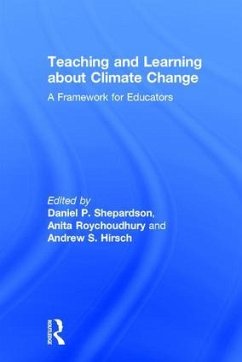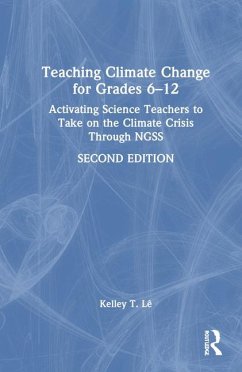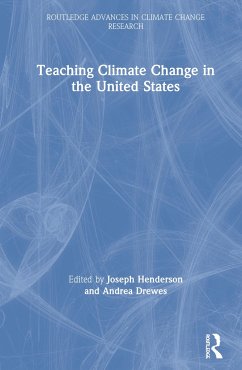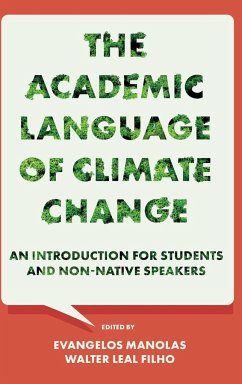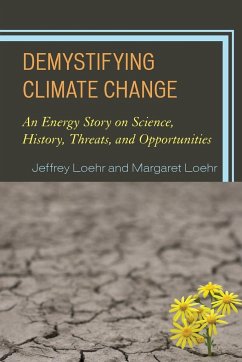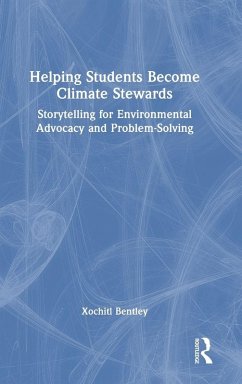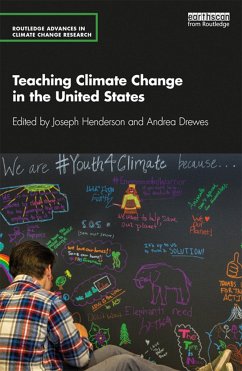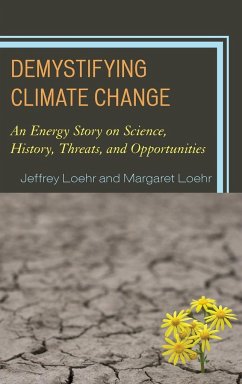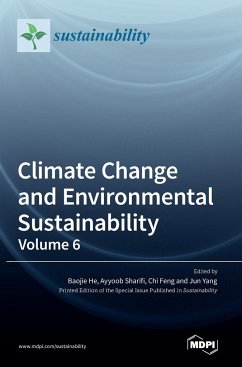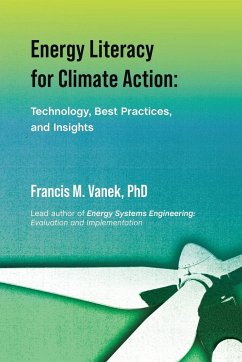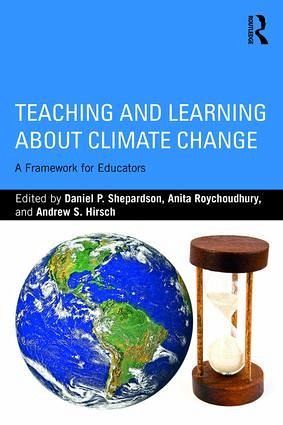
Teaching and Learning about Climate Change
A Framework for Educators
Herausgeber: Shepardson, Daniel P.; Hirsch, Andrew S.; Roychoudhury, Anita

PAYBACK Punkte
32 °P sammeln!
Responding to the issues and challenges of teaching and learning about climate change from a science education-based perspective, this book is designed to serve as an aid for educators as they strive to incorporate the topic into their classes. The unique discussion of these issues is drawn from the perspectives of leading and international scholars in the field. The book is structured around three themes: theoretical, philosophical, and conceptual frameworks for climate change education and research; research on teaching and learning about global warming and climate change; and approaches to ...
Responding to the issues and challenges of teaching and learning about climate change from a science education-based perspective, this book is designed to serve as an aid for educators as they strive to incorporate the topic into their classes. The unique discussion of these issues is drawn from the perspectives of leading and international scholars in the field. The book is structured around three themes: theoretical, philosophical, and conceptual frameworks for climate change education and research; research on teaching and learning about global warming and climate change; and approaches to professional development and classroom practice.





